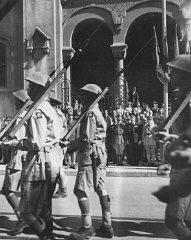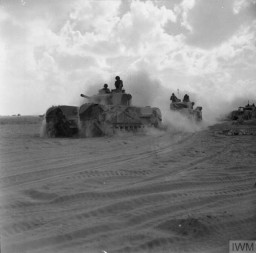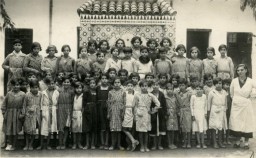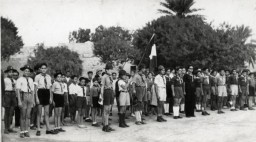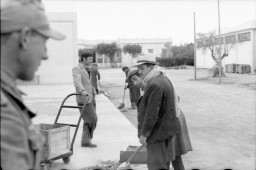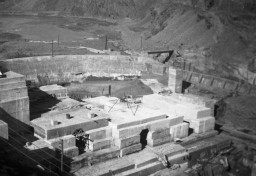Operation Torch: The Anglo-American Invasion of French North Africa
The Operation
Operation Torch was the Anglo-American invasion of French Morocco and Algeria during the North African Campaign of World War II. It began on November 8 and concluded on November 16, 1942. It resulted from an uneasy compromise between the Western Allies, and was intended to relieve pressure on the Soviet Union by imperiling Axis forces in the region and by enabling an invasion of Southern Europe in 1943.
Commanded by General Dwight D. Eisenhower, the operation was designed as a pincer movement with American landings at Morocco’s Atlantic coast and Anglo-American landings on Algeria’s Mediterranean coast. The primary objective was to secure bridgeheads for opening a second front to the rear of German and Italian forces battling the British in Libya and Egypt.
On the night of November 8, after undetected crossings from the United States and the United Kingdom, a great Anglo-American fleet consisting of 350 warships and 500 transports carrying some 107,000 troops assembled off the coast of French North Africa. The following morning, the Allied assault commenced as three task forces sought to seize key ports and airports at Casablanca, Oran, and Algiers before advancing eastwards into Tunisia.
The invasion forces had to overcome French opposition in territories controlled by the Vichy Regime under Marshall Philippe Pétain. His government had some 125,000 soldiers stationed in Morocco, Tunisia, and Algeria, as well as powerful coastal artillery, numerous tanks, aircraft, and warships. Optimistic British intelligence suggested that the French would offer minimal resistance. This would prove wrong.
On November 7, Vichy forces thwarted an attempted coup d’etat by pro-Allied General Antoine Béthouart against the French command in Morocco. Stiff French resistance then caused significant losses at several of the Moroccan assault points before the Western Task Force achieved its landing objectives. On November 10, the Allied troops readied to assault Casablanca. After a brief naval engagement, the French surrendered the city before an all-out attack was launched.
At Oran, the Center Task Force also encountered stubborn French resistance before Oran’s surrender on November 9.
On the other hand, the Eastern Task Force was aided by a successful coup by the French resistance in Algiers, which neutralized the French XIX Corps before the Allied landings there. Allied troops quickly pushed inland, and General Juin surrendered the city in the early evening of November 9. Urged by General Mark Clark, Eisenhower's deputy, Admiral Jean Francois Darlan, Vichy High Commissioner for North Africa, and General Juin also ordered French forces to cease armed resistance in Oran and Morocco on November 10–11.
Consequences of Operation Torch
Operation Torch has a mixed political legacy. In return for his cooperation, Darlan temporarily remained head of the French administration as the French forces in North Africa joined the Allies, deeply offending Charles de Gaulle and other members of Free France.
The operation also led to various unforeseen military consequences. Upon learning of Darlan’s deal with the Allies, Adolf Hitler ordered the occupation of Vichy France and started building up Axis forces in Tunisia, where they would later clash with British troops. Tunis did not fall quickly to British and American forces. Conversely, the invasion also failed to draw away large numbers of Germans from the eastern front, a key strategic rationale given for the operation.
But there were notable successes as well. Operation Torch marked the largest American campaign to date in the Atlantic theater, and the first major operation carried out jointly and combined by the United States and the United Kingdom during World War II. American and British forces had finally seized the offensive after three years of German and Italian forces dictating the tempo of events.
Lessons learned in North Africa would shape Anglo-American decision making and facilitate successful invasions in the European theater throughout the rest of the war.
Series: North Africa
Critical Thinking Questions
- Learn about the diverse Jewish communities of North Africa before World War II.
- What was the relationship between German expansion and the fate of Jews in North Africa?
- Explore recent scholarship about the geographic extent of the Holocaust.
